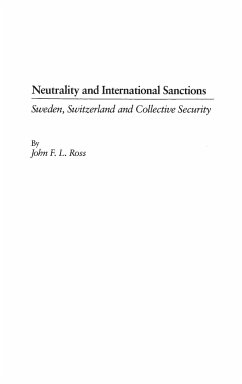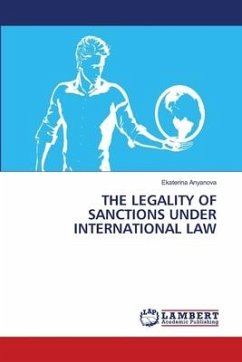Ross here presents a comparative historical study of European neutrality policy with special reference to the problem posed to neutral countries by the imposition of international collective sanctions. The study takes the form of an extended and detailed comparative examination of Swedish and Swiss responses to the League of Nation's embargo against Italy in 1935-36 and the United Nation's sanctions against Rhodesia in 1965-79. Through this analysis, the author explores how and why Swedish and Swiss policies toward sanctions have differed over time and what these differences reveal about neutrality policy in general, particularly in relation to collective security actions taken by international organizations. An ideal supplemental text for graduate and advanced undergraduate courses in comparative politics, international relations, and international organization, this volume will also be of significant benefit to policymakers interested in reviewing past sanctions cases as a guidepost for determining the feasibility of similar operations in the future. The book is distinguished by its broad historical approach and by its close comparison of the two countries--not only in terms of their sanctions policies but also in terms of their domestic political structures and individual overall formulations of neutrality policy. Ross demonstrates that despite the many background similarities between Sweden and Switzerland, the two states have differed substantially in their responses to sanctions operations. He analyzes the reasons for these differences, challenging traditionally held views that characterize Sweden's policies as changeable and Switzerland's as consistent. Finally, Ross identifies seven explanatory factors, derived from the four case studies, which can be used to determine how other source states--both neutral and non-neutral--might respond to future cases of sanctions.
Hinweis: Dieser Artikel kann nur an eine deutsche Lieferadresse ausgeliefert werden.
Hinweis: Dieser Artikel kann nur an eine deutsche Lieferadresse ausgeliefert werden.








